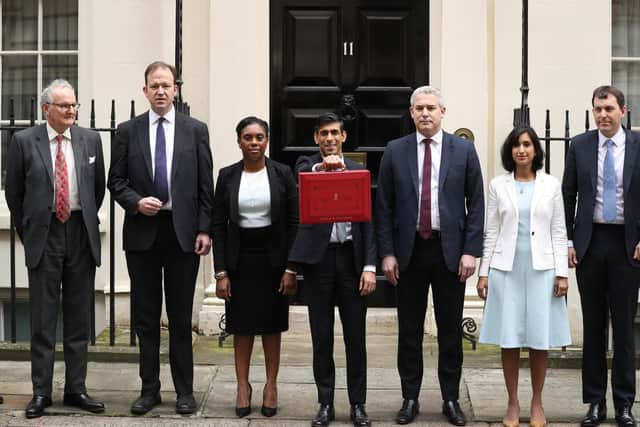Spring Statement - what time is it and what is Chancellor Rishi Sunak expected to announce as inflation approaches 30-year high
and live on Freeview channel 276
The latest figures on the economy has presented grim figures for the government, with rising energy, goods and food feeding inflation.
A cut to fuel duty, prompted by surging prices at the pumps, is widely expected to be on the cards.
Advertisement
Hide AdAdvertisement
Hide AdAn increase to the threshold at which people begin paying national insurance (NI) is also believed to be under consideration, although many have urged Mr Sunak to go further and scrap a planned 1.25 percentage point hike to NI due to hit families in the pocket from next month, just as energy bills soar when the price cap increases.


What time is the Spring Statement?
The Spring Statement, also sometimes referred to as a ‘mini budget’, is due to be unveiled by the Chancellor at the despatch box in the House of Commons from about 12.30pm today (Wednesday, March 23).
The event, which will be streamed on the Parliament live feed, will include speeches and debate, with more detailed documents and plans due to be made available online shortly after.
What challenges does the Chancellor need to address?
Just hours before Mr Sunak’s speech to the Commons, the Office for National Statistics (ONS) revealed figures showing the rising cost of living had helped push inflation to 6.2% – a 30-year high.
Advertisement
Hide AdAdvertisement
Hide AdThe data laid bare the struggle facing households, showing an even higher than expected rise to the Consumer Prices Index (CPI) figure for measuring inflation, as it hit the highest level since March 1992, when it stood at 7.1%.
Russia’s invasion of Ukraine has also had huge repercussions for family finances, with knock on effects on the cost of vehicle fuel and heating, as well as the price of food.
What measures could be announced?
Although the Government has frozen fuel duty for 11 years it now faces a cut in a bid to depress the cost of petrol and diesel as oil prices hit highs on the back of the Ukraine conflict.
A delay to planned NI rises could represent a major u-turn to previous government policy.
Advertisement
Hide AdAdvertisement
Hide AdA £200 loan to every family to cut their gas and electricity payments from October has already been announced.
